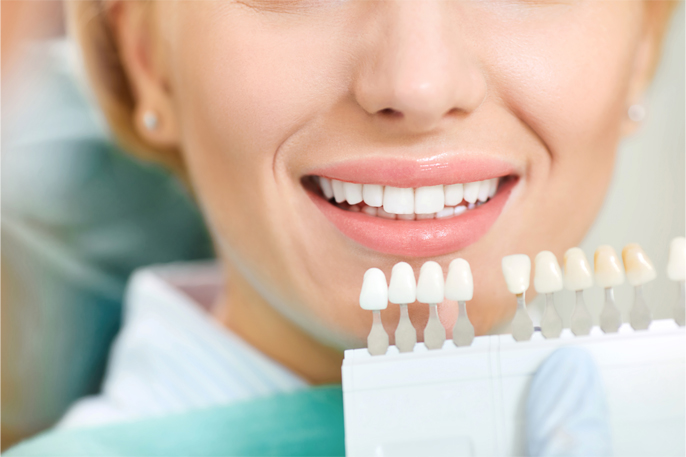When it comes to oral health, the choice between a commercial dental practice and a private dental practice is a decision that many individuals face. Each type of practice has its unique set of characteristics, catering to diverse preferences and needs.
Continue reading “Unraveling the Differences Between Commercial and Private Dental Practices | Fayetteville, GA”Navigating the Path to Excellence: Becoming a Board-Certified Dentist | Fayetteville, GA
Embarking on the journey to become a board-certified dentist is a commendable pursuit that requires dedication, education, and a passion for oral health. This transformative path not only elevates your professional status but also ensures a commitment to the highest standards of patient care. In this blog post, we’ll explore the essential steps and key considerations for those aspiring to achieve board certification in dentistry.
Continue reading “Navigating the Path to Excellence: Becoming a Board-Certified Dentist | Fayetteville, GA”The Battle Against Bad Breath | Fayetteville, GA
Bad breath, also known as halitosis, is a common and often embarrassing condition that can affect anyone at any age. While it’s a prevalent issue, its impact on social interactions and self-esteem cannot be overstated. In this blog post, we will delve into the causes of bad breath, effective prevention strategies, and lifestyle changes to keep your breath fresh and your confidence soaring.
Continue reading “The Battle Against Bad Breath | Fayetteville, GA”How to Deal with Dental Emergencies | Fayetteville, GA
Dental emergencies can strike at any time, causing pain and anxiety. In this guide, we’ll explore common dental emergencies, their causes, and practical steps for immediate relief. Whether it’s a sudden toothache or a knocked-out tooth, being prepared and informed can make all the difference in managing these situations effectively. They encompass a range of urgent situations, from severe toothaches and broken teeth to injuries affecting the mouth and jaw. Recognizing the signs of a dental emergency is crucial for prompt action. Common issues include intense pain, swelling, bleeding, and damage to teeth or surrounding tissues.
Continue reading “How to Deal with Dental Emergencies | Fayetteville, GA”A Comprehensive Guide to Tooth Sensitivity | Fayetteville, GA
Tooth sensitivity is a common dental concern that affects millions of people worldwide. Whether it’s a sudden jolt of pain while enjoying an ice cream cone or a twinge when sipping hot coffee, sensitive teeth can be a real discomfort. In this blog post, we’ll delve into the causes of tooth sensitivity and explore effective strategies for managing and preventing this common dental issue.
Continue reading “A Comprehensive Guide to Tooth Sensitivity | Fayetteville, GA”A Brief History of Dentistry | Fayetteville, GA
Dentistry, an indispensable aspect of healthcare, has a rich and fascinating history that spans centuries. The evolution of dental practices reflects not only advancements in medical knowledge but also cultural shifts and technological progress. Join us on a journey through time as we explore the milestones and transformations that have shaped the field of dentistry over the past 350 years.
Continue reading “A Brief History of Dentistry | Fayetteville, GA”How To Help Your Kids Enjoy The Dentist | Fayetteville, GA
A trip to the dentist often invokes anxiety for both children and parents alike. However, transforming the dental visit into a positive and enjoyable experience is crucial for fostering good oral health habits from a young age. In this blog post, we’ll explore effective strategies to help kids not only overcome their dental fears but actually look forward to their visits.
Continue reading “How To Help Your Kids Enjoy The Dentist | Fayetteville, GA”Understanding Dental Anxiety & How To Overcome It | Fayetteville, GA
Dental anxiety is a common concern that affects individuals of all ages, preventing many from seeking the dental care they need. The fear of dental procedures can lead to postponed appointments, deteriorating oral health, and unnecessary discomfort. In this blog post, we’ll explore the roots of dental anxiety and provide practical tips to help you overcome it, ensuring a positive and stress-free dental experience.
Continue reading “Understanding Dental Anxiety & How To Overcome It | Fayetteville, GA”Diabetes Can Affect Your Smile’s Health | Fayetteville, GA
Diabetes is a disease that affects more and more people every day, but did you know that it affects more than just your blood sugar? It’s true. Diabetes not only needs to be monitored to maintain your overall health but not taking care of your diabetes can also affect your mouth. Let’s explain.
Continue reading “Diabetes Can Affect Your Smile’s Health | Fayetteville, GA”The Anatomy of the Human Mouth | Fayetteville, GA
The human mouth consists of several distinct components, each with its unique functions. It’s a marvel of biological engineering, serving a multitude of essential functions that go far beyond mere communication. This intricate structure plays a vital role in our ability to eat, breathe, and express our emotions. In this blog, we will take a closer look at the anatomy of the human mouth and the various components that make it such a versatile and indispensable part of our bodies.
Continue reading “The Anatomy of the Human Mouth | Fayetteville, GA”





